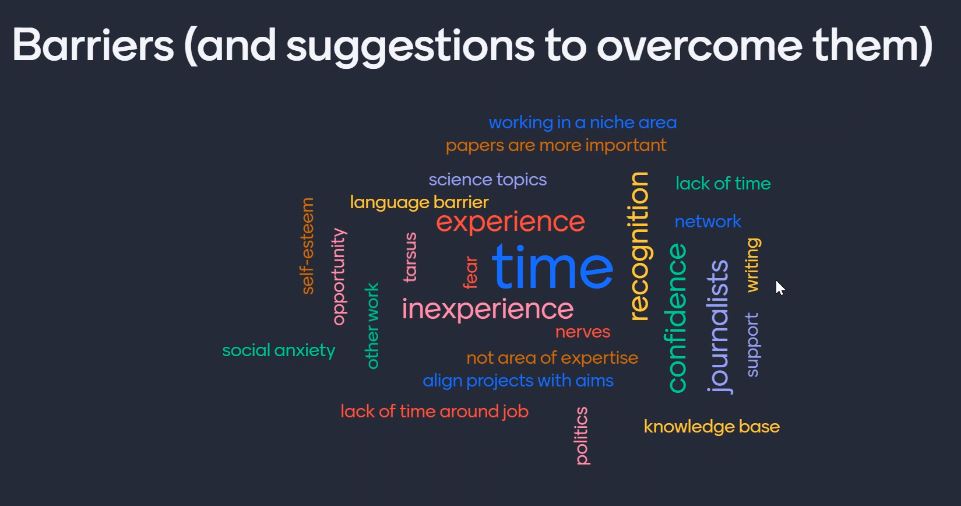Women in Climate (WiC) network
Women in Climate (WiC) network
Posted by Ruth Chapman
14 February 2022This month we were happy to be joined by Dr Rosie Oakes who is a Senior Scientist in the International Climate Services team at the Met Office. Rosie has a wealth of science communication expertise from having her postdoctoral work exhibited in the Academy of Natural Science in Philadelphia and being featured in a film by hit Youtuber Jack Harries and on ITV news during COP26. Rosie is passionate about communicating climate change science to a wide range of audiences and making science accessible and open to all.
To begin, we had a short discussion of why we should bother with science communication? Some of conclusions reached were;
During the session, Rosie discussed some way that we can build our confidence when doing science communication. The phrase ‘safe space to fail’ was often used, and below is a list of possible communication scenarios, listed from least to highest risk. You can check out the slides here. WomenInClimate_ROakes_Feb2022
In this list it is noticeable some certain changes as we move to more high risk events. For example, the change in audience size, whether it is a solo or team project, if there is a friendly audience, and if there is any oversight before publication. Some final tips on how to prepare;
Finally, a word cloud of some of the barriers faced;

Below is a list of links and resources that were gather in the session from Roise and members which will hopefully be helpful in taking some first steps and connecting with other.
Rosie’s Penn state Museum exhibit
Freya and Rosie have kindly produced a document of FAQ’s for outreach events, with some suggestions of answers that people could use when asked common climate science questions. See the full document here: Freya_and_Rosie’s_Public_FAQs_Climate_Outreach